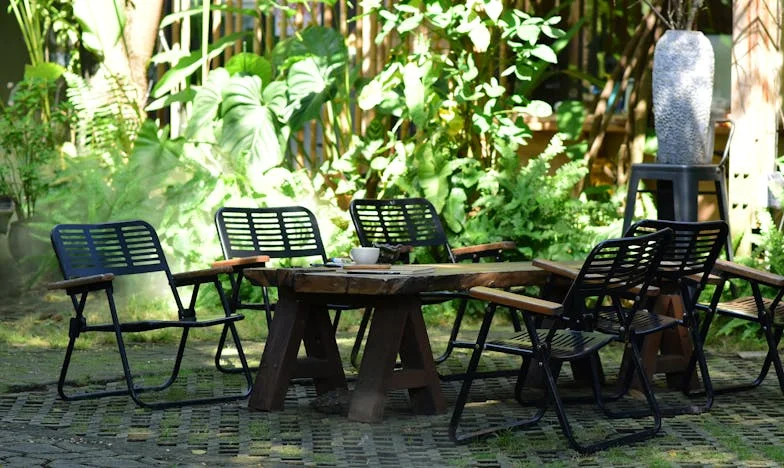When the Past Steps Onto the Dance Floor: A Story of Second Chances
The saxophone’s wail tangled with laughter and chatter, bouncing off the ballroom’s polished wood floors. I stood near the punch table, my hands sweating against the delicate stem of my glass, when a voice I hadn’t heard in thirty years cut through the noise: “May I have this dance?”
I spun around and nearly dropped my drink. There he was. Mark. My first real boyfriend, the boy who taught me to drive, who took me to prom in his dad’s battered Ford, and who broke my heart the summer after graduation. He looked older, of course—gray at his temples, lines spider-webbing from his eyes—but there was no mistaking that crooked grin. For a moment, the world spun like a scratched record.
“Karen?” he asked, his hand extended. “Is it really you?”
I wasn’t supposed to be here for romance. After my divorce and my kids leaving for college, I’d come to this retreat in upstate New York to reset, to escape the suffocating silence of my empty house, not to relive ancient history. But the room seemed to hold its breath, and my heart hammered in my chest like a teenager’s.
I took his hand. His palm was warm, familiar. “It’s me,” I whispered, barely trusting my own voice.
We moved onto the dance floor, lost among retirees in floral prints and pressed khakis. The band played an old Motown tune, and Mark’s arm slipped around my waist. The last time he’d touched me, I’d been seventeen, barefoot on his porch, crying because he’d decided to go to college out West, leaving me behind in Ohio.
“So,” Mark began, his voice as gentle as the music, “what brings you to Willow Springs?”
I shrugged, feeling my defenses rise like shields. “Just needed a break. Life got a little too… quiet.”
He smiled. “Same. My kids said I was driving them nuts after I retired. Figured I’d better give them some space.”
We danced in silence for a moment. My mind raced with questions, but I kept them locked away. Instead, I focused on the sway of our bodies, the way he still counted the beat under his breath, just loud enough for me to hear. Old habits die hard.
The song ended, and the crowd applauded. Mark didn’t let go. “Want to take a walk?”
Outside, the air was thick with the scent of honeysuckle and distant rain. We wandered down a gravel path lined with lanterns. I tried to act casual, but inside, a storm raged. Did he remember how we’d danced at prom, how we’d dreamed of running away together before reality—and fear—pulled us apart?
“Do you ever think about back then?” he asked, his tone soft.
“All the time,” I admitted, surprised by my own honesty. “Sometimes I wonder if I should’ve followed you to California.”
He stopped, turning to face me. “Karen, I waited for you to call. For years, I thought you’d show up at my door.”
My throat tightened. “I was scared. My dad lost his job, my mom was sick. I couldn’t just leave. And then… life happened.”
Mark’s eyes glistened in the lantern light. “I get it. I really do.”
We sat on a bench, the night stretching between us. I wanted to ask if he was married, if he’d found happiness, but I was afraid of the answers. Instead, I told him about my ex-husband, about the nights I lay awake listening to the house creak and groan, missing the chaos of my children. I told him about the job I lost during the pandemic, the friends who drifted away, the feeling of becoming invisible.
Mark listened without interrupting, his hand covering mine. When I finished, he squeezed gently. “I got sick last year. Heart attack. That’s why I’m here. My daughter thought some fresh air would do me good.”
I blinked back tears. “I’m glad you’re okay.”
He laughed, rough and low. “Me too. But it makes you think. About all the things you meant to do. The people you meant to keep in your life.”
The next day, we walked the lake trail together. We talked about music, about our kids, about the books we never finished. Every moment felt fragile, like it could shatter if I breathed too hard. At lunch, Mark reached for my hand across the table. “You know, I never really stopped loving you.”
I flinched, instinctively glancing around, as if someone might overhear. “Mark—”
He cut me off. “I’m not trying to make things complicated. I just want you to know. In case you ever wondered.”
I looked at him, really looked. The man he’d become—the man I’d become—surprised me. We were bruised and scarred, but still here. Still reaching out for connection, for hope.
That evening, the retreat hosted a bonfire. Mark and I sat side by side, the flames painting our faces gold. Someone played a guitar, and people sang along to old Eagles songs. I felt something inside me loosen, a knot I’d carried for decades.
Later, walking back to our rooms, Mark stopped outside my door. He hesitated, and for a split second, I saw the boy he’d been, nervous and eager.
“Would you want to see me again after this?” he asked, voice barely above a whisper.
I smiled, tears prickling my eyes. “I think I’d like that.”
That was three months ago. We talk every day now, sometimes for hours. We’re both cautious, both a little afraid, but we’re trying. My daughter thinks I’m crazy, my friends are skeptical. But for the first time in years, I feel alive.
Standing here tonight, packing my bags to visit Mark in Cleveland, I wonder: Is it ever too late for a second chance? Or do we just have to be brave enough to reach out when the music starts again?
